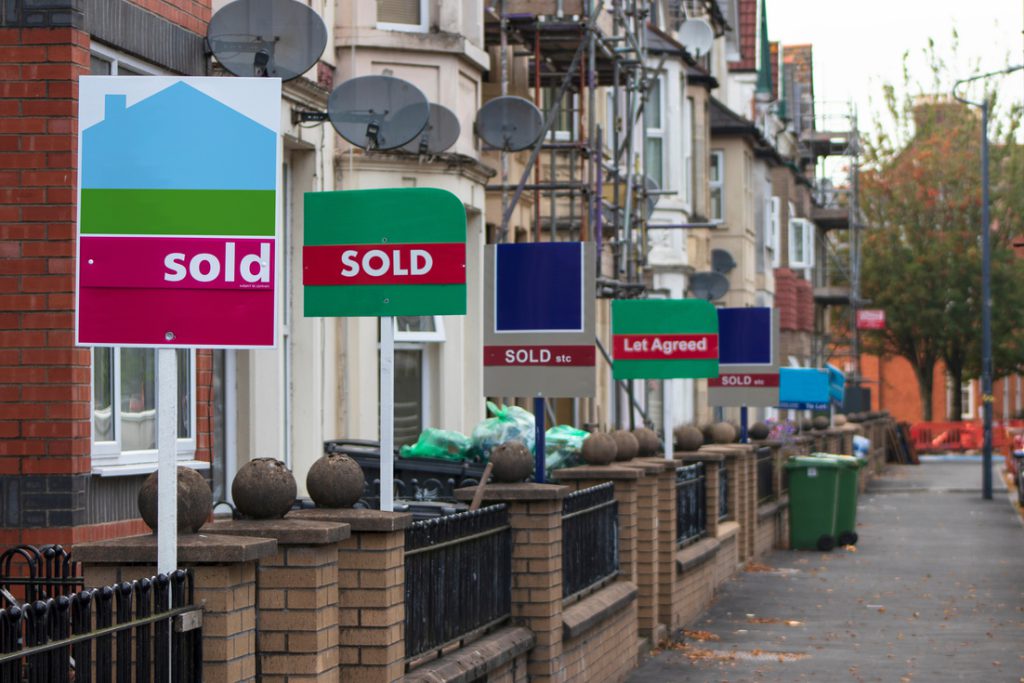Having an offer accepted on a new property is a big, exciting moment. But it’s not time to celebrate. The act of gazumping could mean you’re leaving the bubbly on ice for a while yet.
What does gazumping mean? Gazumping is when a seller verbally accepts an offer on a property, only to go back on their word and accept a higher offer from another buyer.
This leaves the original buyer with a difficult choice: increase their original offer or miss out on the property. If this happens to you, you’ve been “gazumped.”
Here, we look at why gazumping happens, if it’s illegal in the UK, and how you can avoid it.
Ready? Let’s get started.
Why does gazumping happen?
There are a few reasons why gazumping happens to buyers:
- The sale is taking too long to complete. If you’re in a property chain (where you’re relying on someone selling their house before they can buy yours and help fund your purchase), delays can put your offer at risk.
For example, if your sale is being held up by problems elsewhere in the chain, this could put the seller on edge. And if this happens, they might return to the market and accept another offer if they think a different buyer will complete the purchase faster.
- The buyer has had a “below the asking price” offer accepted. When making an offer on a property, there’s usually a bit of back and forth expected. You’ll make an offer below the asking price, it’ll be rejected, and you’ll renegotiate until you land on a figure you both agree on.
But if the seller wants to make a quick sale, they might just accept the first offer you make, even if it’s a low one. However, you can’t celebrate too quickly. Until contracts are exchanged, the sale isn’t legally finalised. That means there’s still a risk someone else could swoop in and match the asking price, gazumping you in the process.
- The seller wants to make as much as possible. Finally, the most obvious reason for being gazumped is that the seller simply wants to get as much money for their property as they can.
Will I lose any money if I’m gazumped?
It depends. Money spent on property surveys or paid to a conveyancing solicitor to carry out third-party searches is typically non-refundable. If you’re gazumped before you’ve arranged the surveys or searches, you should be in the clear. Otherwise, you’ll be out of pocket.
Read more: Conveyancing Fees Explained
What is “gazundering”?
Before we delve any deeper into the world of gazumping, there’s another, similar term worth noting. It’s called “gazundering”.
Gazundering is when a buyer submits a lower offer after the sale price has been agreed. Often, this is a result of issues flagged in a property survey, like dampness or problems with the structure. Ultimately, this would mean the property isn’t worth as much as advertised or expensive repairs are required to bring it up to standard.
Sometimes, however, gazundering can happen when a sale is time sensitive. In this case, the buyer is angling for a better deal knowing that the seller will have little choice but to accept a lower offer to complete the sale on time.

Is gazumping illegal?
No. Gazumping is perfectly legal and can happen at any time. Although frowned upon, the seller is well within their rights to accept a higher offer up until the moment contracts are formally signed and exchanged.
However, once those contracts have been exchanged, the sale is legally binding and backing out becomes complex and expensive. And while gazumping is still possible at this point, it’s rare. That’s because, should the seller break their agreement with you and accept another offer, you could sue them for any losses incurred
Is gazumping unethical?
So, it’s not illegal. But is gazumping unethical? For many people, the answer is “yes”.
Ultimately, the moral responsibility rests with the seller. Just because there’s a higher offer on the table doesn’t mean it needs to be accepted. If you’ve already agreed to a sale with someone else, going back on your word without a good reason is unfair and even unscrupulous.
And if you’re the gazumper (the buyer making the higher offer), you probably won’t escape with a clear conscience either. After all, your actions could result in someone else losing a lot of money.
The bottom line is you have every right to be upset if you’ve been gazumped. It’s never a nice feeling to have the rug pulled at the last minute, especially when you’ve already invested so much time and money into the purchase up to this point.
How common is gazumping?
Gazumping remains common in many parts of the UK, however, it’s all but eradicated in Scotland (more on that below).
An April 2022 survey of homebuyers in England and Wales found that 31% had been gazumped at least once since 2012. This rose to 51% in London.
A further 26% admitted to gazumping another buyer, while 47% said they would consider gazumping a rival bidder if it secured their desired property.
Why is gazumping less common in Scotland?
The reason why gazumping is less common north of the border is that property sales work differently in Scotland.
When you make an offer to purchase a property, it needs to be officially submitted by your solicitor and accepted by the seller’s solicitor. And once the seller’s solicitor accepts an offer, they can’t accept another one.
This means if the seller receives a higher offer, they’d need to drop their current solicitor and hire a new one to pursue it legally. The added time, stress, and expense of this makes gazumping far less likely to happen in Scotland.
Do estate agents encourage gazumping?
Most estate agents won’t actively encourage gazumping, but they can’t always avoid being involved. That’s because, even after a sale has been agreed, if another offer comes in, they’re duty-bound to let their client know.

How to avoid gazumping as a buyer
At the end of the day, you can’t stop a seller from accepting a higher offer if it comes their way. However, there are a few steps you can take to minimise the risk of being gazumped:
1. Get a mortgage in principle
A mortgage in principle is a letter from your mortgage provider confirming that they’re willing to lend you the money you need to make the purchase. It’s not a guarantee that you’ll get a mortgage, but it’s a reliable estimate of what you’ll be able to borrow. This could help put the seller’s mind at ease that you’ll be able to follow through on your offer.
2. Stay organised
The longer it takes to finalise a sale, the more chance you have of being gazumped. Make sure you’re organised and responsive throughout the process. If your solicitor has questions, answer them ASAP. If you need to pay for a survey or provide ID or documentation to your mortgage provider, don’t leave it until the last minute. Try to keep everything running smoothly.
3. Take out Home Buyers’ Protection Insurance
This specialist insurance policy protects you in the event of gazumping. It lets you claim back some of your survey, conveyancing costs, and any other fees you may have paid while attempting to buy the property.
4. Ask the seller to take the property off the market
Once you’ve had your offer accepted, you should ask the seller to take the property off the market. Although this is entirely at their discretion, you may find they’ll be more willing to agree if you have a mortgage offer in writing. If they’re happy to do so, make sure the estate agent takes down any online listings and removes the For Sale signs from the property.
In summary: What to do if you get gazumped
The above tips should help reduce your chances of being gazumped, but there’s no way of guaranteeing it won’t happen. If you do find yourself on the receiving end of a gazump, don’t panic. You still have options.
First, check your finances to see if you can make a counteroffer (if that’s what you want to do). If you do return to the table with a higher offer, make sure you can afford it, and try to avoid getting drawn into a bidding war.
And if you don’t want to make a higher bid, but you still want to pursue the property, you could make a case for being the better option for the seller — even if you’re not offering the most money.
For example, if you’re a first-time buyer, the fact you’re not part of a chain might swing things in your favour if the seller wants to make a quick sale.
Or, if you can be flexible on the move-in date, the seller might choose you as they won’t need to spend money on temporary accommodation while they wait to move into their new property.
Also read:
First-time home buyers’ checklist
Getting your home ready to sell
What happens on completion day

